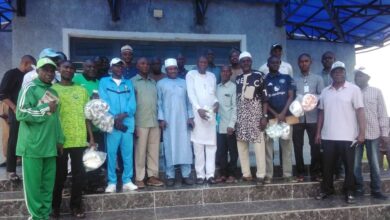EPL: Spurs in top four, hammers hapless West Ham

Tottenham moved into the top four of the Premier League thanks to a home victory over struggling West Ham, who remain in the relegation zone.
The Spurs wing-backs linked up for the first goal of the game, with Ben Davies releasing Emerson Royal to shoot into the bottom corner.
West Ham had an immediate chance to equalise but Jarrod Bowen’s powerful effort, after he outpaced Cristian Romero, was well saved by home goalkeeper Fraser Forster.
Spurs substitute Son Heung-min scored four minutes after coming on when he raced onto Harry Kane’s through ball and slotted a finish past Lukasz Fabianski.
The Hammers would have moved above both Bournemouth and Everton with a draw, but instead remain 18th as they suffered their first defeat in five matches in all competitions.
Tottenham moved one point ahead of Newcastle, although Eddie Howe’s side, beaten 2-0 at home by Liverpool on Saturday, have a game in hand.
Tottenham had assistant manager Cristian Stelliniback in charge with Antonio Conte resting after his recent gallbladder surgery.
Conte had been on the touchline for the recent games against Leicester and AC Milan, but subsequently said he had rushed his recovery and was not ready for a full-time return.
Ligue 1: Neymar stretch out as PSG defeats Lille
Neymar was carried off on a stretcher before Lionel Messi scored a 95th-minute winner as Paris St-Germain gained an incredible win over Lille.
PSG had been 2-0 ahead and 3-2 behind after goals from Lille’s Bafode Diakite, Jonathan David and Jonathan Bamba transformed the match.
Kylian Mbappe, who opened the scoring, grabbed his second in the 87th minute to give PSG hope of victory.
Messi then won it in dramatic fashion with a 22-yard free-kick.
Despite the win, PSG’s main concern will be for Brazil forward Neymar after the 31-year-old, a goalscorer in the first half, was kicked on his calf and then went over badly on his right ankle five minutes into the second half.
He looked in great pain with his hands over his face as he was carried off at the Parc des Princes.




